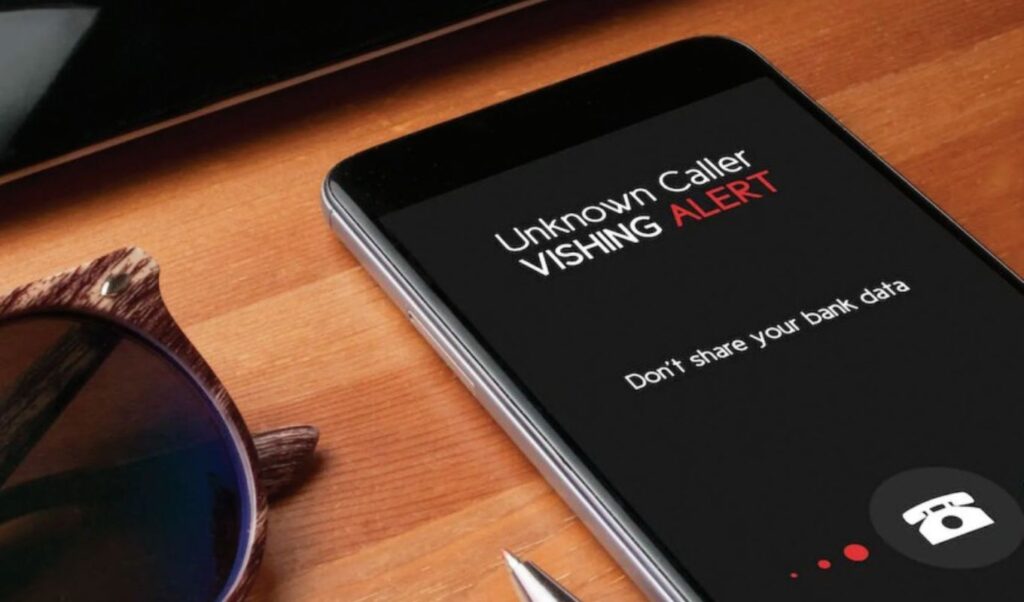Citizens must remain constantly vigilant to avoid becoming victims of fraud by criminals operating in the digital world. The need to protect our personal data has never been greater, as technology is now intertwined with every aspect of our daily lives, giving ground to the activities of digital “pickpockets”.
Read: Fraud in Halkidiki: Alleged accountants extracted thousands of euros and jewelry from two citizens – Perpetrators arrested
Scammers continue to evolve and find new methods and deception techniques
Criminals continue to evolve and find new ways and deception techniques, and the consequences of electronic fraud can prove extremely damaging if we are unsuspecting or hasty. A call to your mobile from, say, the Ivory Coast or a message claiming your debit card has been canceled and you need to enter your PIN through an electronic link, or that there’s a temporary block on your account and to unlock it you must follow instructions from an electronic link – these should be ignored immediately. Because it’s certain that if we respond, they will steal our personal data and financial information. In fact, we ourselves will have served them “on a platter” to the scammers and won’t be able to recover them.
The trap of digital scammers when they “offer” an “opportunity”
We can also fall into the trap of digital scammers through the impression that they’re offering us something that represents an opportunity or our right. This is how scammers operated in the recent fraud with phone calls allegedly from social security for issuing prepaid cards, while other scammers pose as accountants requesting personal data and account codes for allegedly receiving benefits, or some others send us directly to withdraw money from ATMs!
It’s certain that if we respond, they will steal our personal data and financial information. In fact, we will have served them “on a platter” to the scammers
How to identify if it’s a scam
Specifically, they may call and tell us that by going to the ATM and selecting “Online Deposit” or “Transfers” transactions, we will receive money. We must not fall into the trap – simply hang up the phone immediately. Because we must think that the above online deposit or money transfer services function exclusively to transfer or deposit money to other bank customers, not for us to receive some amount from a third party or organization. Scammers may also tell us that when conducting the ATM transaction to receive money, we should type the code they give us in the “Amount” field. Obviously, we hang up immediately, because the code they give us is simply to transfer our money to their own account. In conclusion, ATM or e-banking orders for money transfers are only for sending money, not receiving it. So even if we receive an email with the supposed sender being the bank, telling us “right now your e-banking doesn’t function as money transfer, but as money acceptance,” we should be suspicious that it’s a scam.
As banks and the Hellenic Bank Association have informed, criminals use various “attack” methods, with the most common being fraud via phone calls (Vishing), via email (Phishing) and via SMS (SMiShing). They warn that you’re at risk of major fraud when:
- You receive phone calls from unknown numbers or emails/SMS where those contacting you claim they’re calling about benefits, taxation, tax returns, etc. Moreover, they claim to be accountants or employees/representatives of the Tax Office, gov.gr, power company, social security, employment office, etc., and request various information related to your bank accounts. Don’t believe these calls or click on links included in emails and SMS, and don’t give any personal information. Otherwise, the scammer will request your e-banking login codes and try to make money transfers from your accounts. Never reveal e-banking codes or card details or one-time passwords (OTP).
- You receive emails and SMS where the “bank” states that “suspicious activity has been observed” on your account or card, or that your account or card “has been locked or deactivated.” The messages contain some link and urge you to immediately follow the instructions there to solve your problem and unblock your access. These messages aim to deceive you into entering your e-banking access codes or card details on a fraudulent website identical to your bank’s, as well as the one-time passwords (OTP) you receive at that moment, which are required for transaction approval.
Published in Money Pro of Parapolitika




